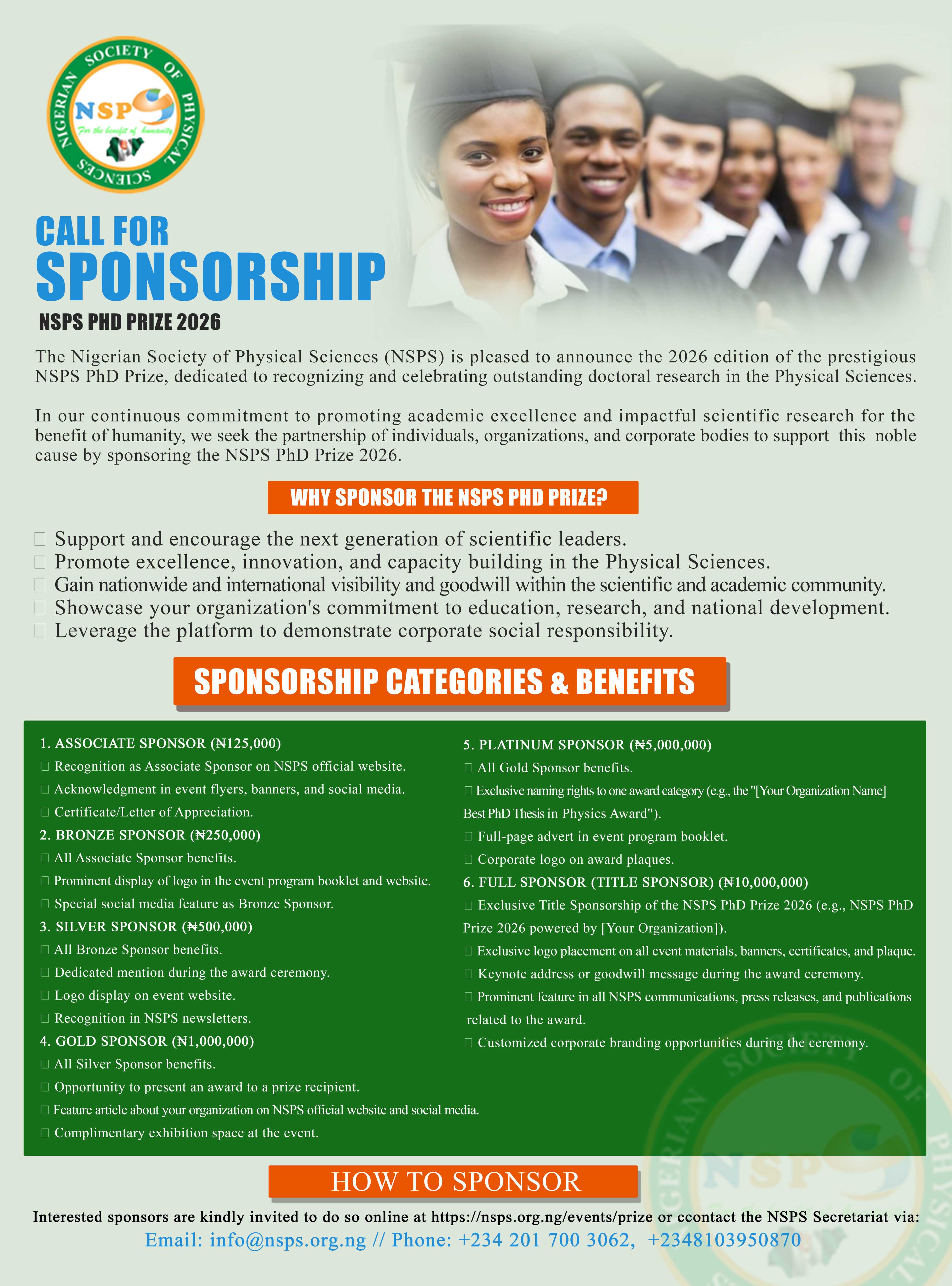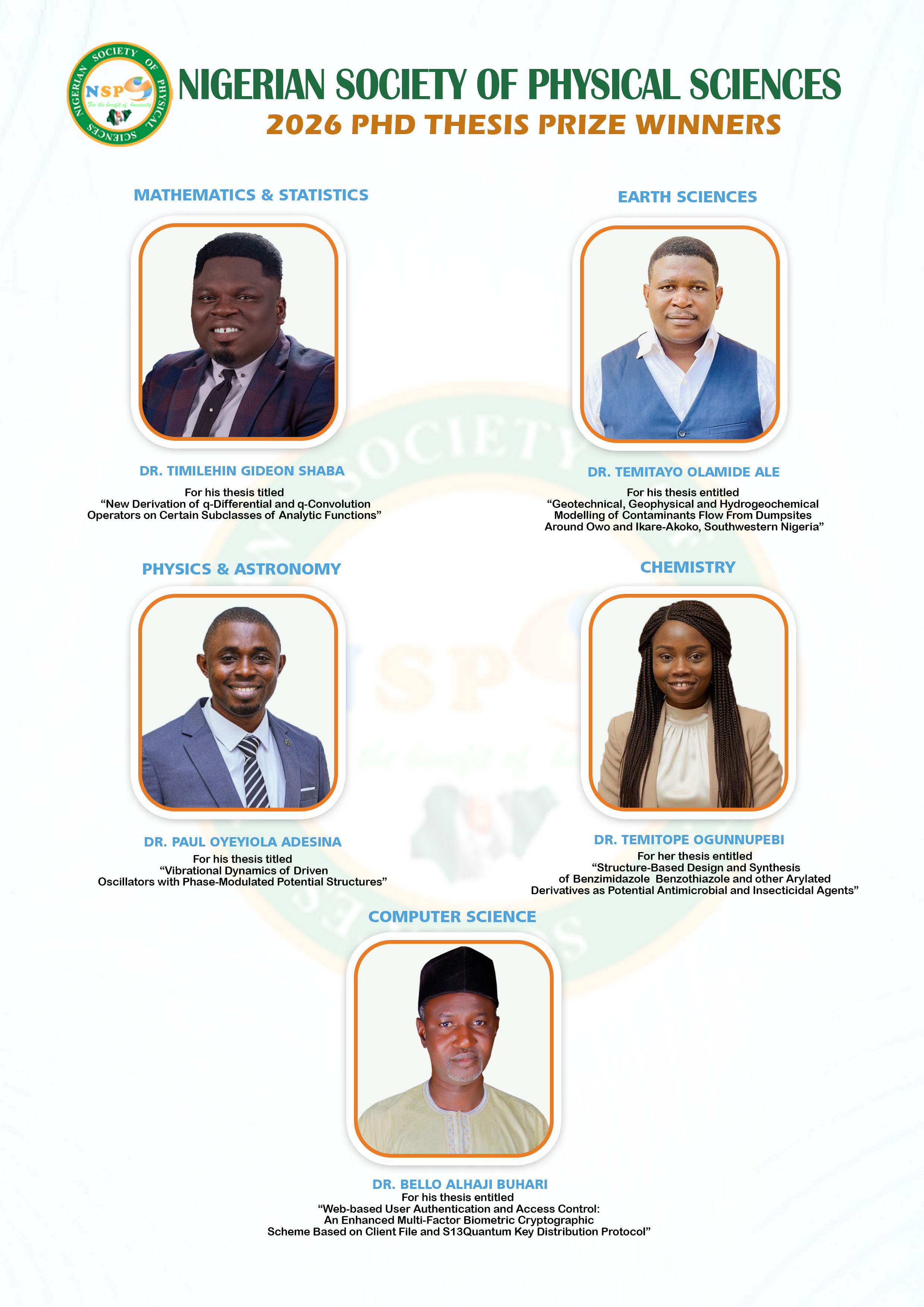Special Issue : "Recent Advances in Applications of Potential Models to Study Physical Systems"

Brief Overview of the Special Issue
Quantum mechanics (QM) is a wide field that has attracted the attention of physicists, chemists, engineers, and mathematicians alike since its invention more than ten decades ago by the German theoretical physicist, Max Karl Ernst Ludwig Planck. QM is the basic concept that can efficiently demystify the dynamics of a particle in the micro-physical terrain. Actually, it possesses the mathematical underpinning that gives profound comprehension into the physics of solids, semiconductor and superconductor devices, plasmas, lasers and so on. It incorporates all modern physics disciplines like condensed matter, molecular, atomic, nuclear and particle physics, optics, thermodynamics, statistical physics, etc.
To this end, to carry out studies and applications in quantum mechanics, potential models are employed. Potential models are at the very core of quantum mechanics and physics at large. Strictly speaking, potentials are carefully worked-out demonstration of influences which confine particles of a system in a specific region. Interatomic potentials are mathematical expressions for computing the potential energy of a system of atoms with given position in space. Interatomic potentials are extensively used as the physical basis of molecular dynamics simulations in computational chemistry, computational physics and computational materials science, both to predict quantitative materials properties and qualitative trends.
Potentials have many forms depending upon the interaction of particles within the system such as harmonic oscillator, Coulomb potential, Kratzer potential, screened potential, Deng–Fan potential, etc. and some combinations of these potentials and a lot of research work has been carried out to solve several wave equations (relativistic and non-relativistic), exactly or approximately, for such interactions.
The failure of the harmonic oscillator to describe interatomic interactions in diatomic molecules led to the discovery of the Morse potential. The success of this model need not be overemphasized. Several instances have inspired researchers to propose improved interaction model, e.g. when there was a loophole in the description of the James Chadwick’s atomic model, Hideki Yukawa proposed the screened coulomb potential which includes an exponentially decay term and an electromagnetic term. The Hellmann potential which is a combination of the well-known Coulomb potential and the Yukawa (screened Coulomb) potential was proposed by Han Hellman. This model was used as an approximation for the simplified description of complex systems. This potential arose in an attempt to replace the tedious effects of the motion of the core (i.e. non-valence) electrons of an atom and its nucleus with an effective potential.
However, it behoves every physicist and related experts to continuously seek for a better molecular or interaction potential that simulates quasi-perfectly the interactions in a physical system. Several applications of potential models to predict thermodynamic properties, behavior of molecules, etc. with high accuracy have been witnessed for some time now.
Therefore we invite researchers to submit original research articles and reviews to this Special Issue of the Journal of the Nigerian Society of Physical Sciences (JNSPS) on “Recent Advances in Applications of Potential Models to Study Physical Systems” that aims to identify and review the latest research in this research direction that have demonstrated to have a great impact in the field. Manuscripts can be related to any aspect of the following (but not limited to):
- Relativistic and Non-Relativistic treatments of potential models
- Molecular Modelling of Diatomic and Tri-atomic molecules using potentials
- Quarkonium systems
- Information Theoretic Measures
- Prediction of Thermodynamics properties of Diatomic and tri-atomic molecules
- Molecular Processes in external fields
- Quantum Dots
- Sextic Potentials and applications to physical systems
- Applications of Thermodynamics
- Topological Defects
- Deformed Quantum Mechanics
- Hydrogen Atom in Quantum-Plasma
- Plasma in external fields
- Quantum Optics
- Optical Properties of Quantum Dots.
Manuscript Submission Information
Guidelines for preparation of manuscripts can be found online at https://journal.nsps.org.ng/index.php/jnsps/about/guidelines-for-authors. Manuscripts can be submitted until the deadline. All papers will be peer-reviewed. Accepted papers will be published continuously in the journal (as soon as accepted) and will be listed together on the special issue website. Research articles, review articles as well as short communications are invited.
Submitted manuscripts should not have been published previously, nor be under consideration for publication elsewhere (except conference proceedings papers). All manuscripts are thoroughly refereed through a single-blind peer-review process. A guide for authors and other relevant information for submission of manuscripts is available on the Instructions for Authors page. JNSPS is a peer-reviewed journal published quarterly (February, May, August, and November) by the Nigerian Society of Physical Sciences.
The Article Processing Charge (APC) for publication in this open access journal is 15,000 Naira (40 USD) as an active member of the Nigerian Society of Physical Sciences or 25,000 Naira (70 USD) as a non-member/non-active member of the Nigerian Society of Physical Sciences. Submitted papers should be well formatted and use good English.
Special Issue Editors
Lead Guest Editor
R. Khordad
Affiliation: Department of Physics, Yasouj University, Daneshjoo St, Yasuj, Iran
Email: [email protected]
Google Scholar: https://scholar.google.com/citations?user=uLF3DlIAAAAJ&hl=en
Profile: Professor Reza Khordad was born on February 19, 1977 in the Shiraz city (Iran). He obtained a PhD degree in Theoretical Physics in March 2007 from Shiraz University in Iran.
He has published 165 SCI-indexed papers. His research interests are: Mathematical Physics, theoretical and experimental Nanoscience, Quantum biology, theoretical and experimental sensors, thermodynamics, mechanical, optical and magnetic properties of nanostructures, Statistical mechanics, complex systems and liquid crystals. He has some papers on these subjects. Recently, he ventured into fractal investigations. He has a patent in Iran entitled “Electric spark device in liquid phase and under vacuum”. He has lectured in the Faculty of Sciences of the Yasouj University since 2007 and have supervised five PhDs since 2013. Prof. Khordad is a reviewer to many prestigious journals focusing mathematical physics and related areas.
Guest Editor 1
C. O. Edet
Affiliation: Department of Physics, Faculty of Physical Sciences, Cross River University of Technology, Calabar, Nigeria.
Email: [email protected]
Google Scholar: https://scholar.google.com/citations?user=kYkyPz4AAAAJ&hl=en
Profile: Collins Edet is a lecturer and researcher in the department of physics, Cross River University of Technology, Calabar, Nigeria. He has published numerous journal articles, indexed in web of science (WOS), Scopus, Journal Citation Report (JCR) etc. His research articles have been cited more than 700 times on Google Scholar with h-index of 18 and 25 i10-index making him one of the most cited researchers in Cross River University of Technology. He serves as a reviewer to many prestigious journals focusing on Mathematical Physics and related areas such as Scientific Reports, Nature; Heliyon, Elsevier; International Journal of Quantum Chemistry, John Wiley & Sons; Journal of the Nigerian Society of Physical Science; Ukranian Journal of Physics; Journal of Low Temperature Physics, Springer; Indian Journal of Physics, Springer; European Physical Journal plus (EPJP), Springer etc. He is currently the Lead Editor of the Archive of the Notable Nigerian Physical Scientist (ANNPS), a magazine of the Nigerian Society of Physical Science (Read more about NSPS at https://nsps.org.ng). He is a member of the American Physical Society, member of the Nigerian Society of Physical Science (NSPS) and member of the Nigerian Institute of Physics (NIP). His research interest includes: Quantum/Mathematical physics (Wave Mechanics, Atomic structure, Topological defect and Molecular processes in external fields) and Quantum Information Theory. Recently, in collaboration with Dr. A. N. Ikot (and other members of their research group) and Distinguished Professor Ramazan Sever, they have successfully developed a new simplified method for solving second order differential equations (Few Body Systems. 62 (2021) 9). This method has received enormous attention in the mathematical science community. He has attended and participated in several national and international scientific conferences.
Guest Editor 2
P. O. Amadi
Affiliation: Department of Physics, University of Port Harcourt, Rivers State, Nigeria.
Email: [email protected]
Google Scholar: https://scholar.google.com/citations?user=C0fYli4AAAAJ&hl=en
Profile: Precious Ogbonda Amadi is a research assistant in the Theoretical Physics Group, Department of Physics, University of Port Harcourt, Nigeria. He has published widely in journals indexed in Scopus and Web of Science. He serves as a reviewer to many esteemed journals focusing on quantum information theory and related areas such as International Journal of Quantum Chemistry (IJQC), Physica Scripta, Journal of Physics B: Atomic, Molecular and Optical Physics etc. His research articles have been cited more than 250 times on Google scholar. His research focuses on Bohr Hamiltonian, Quantum Information theory and Thermodynamic properties of several physical systems. He has attended and participated in several national and international scientific conferences. He is a member of the Nigerian Institute of Physics (NIP).






